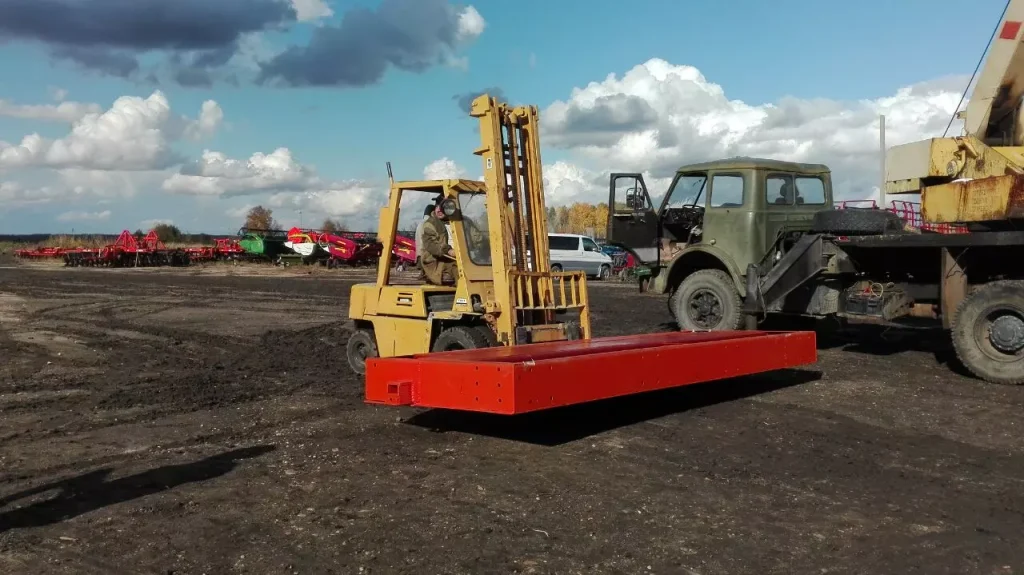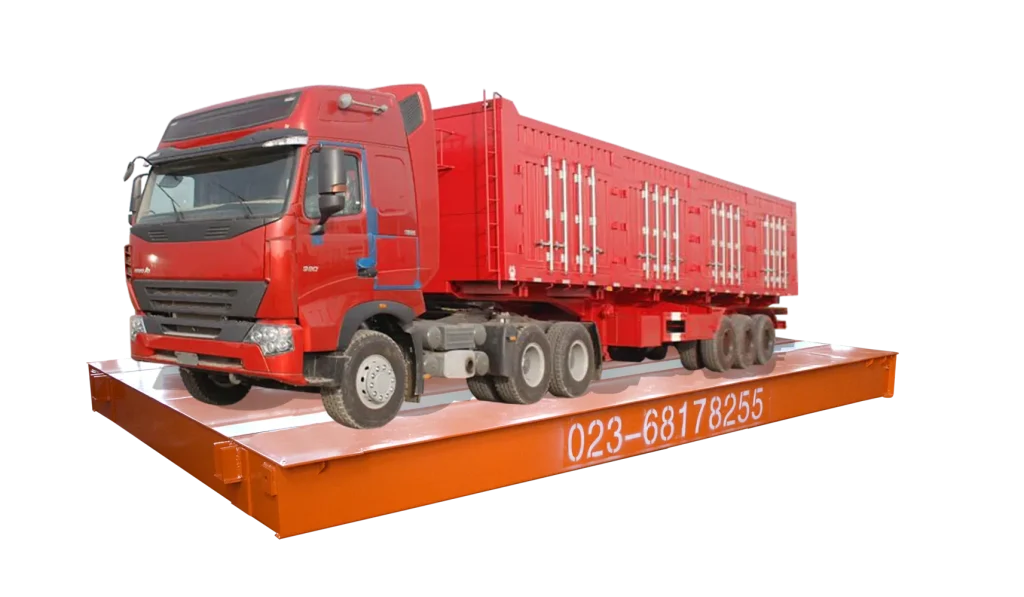How to Choose the Right Scale for Your Farm?
Accurate weighing will maximize farm productivity and profitability. This article will explore the diverse applications of industrial platform scales in agriculture, from livestock weighing and crop yield monitoring to inventory management and quality control. We will delve into specific considerations when selecting the right scale for your farm, including weight capacity, accuracy requirements, durability, and available features.
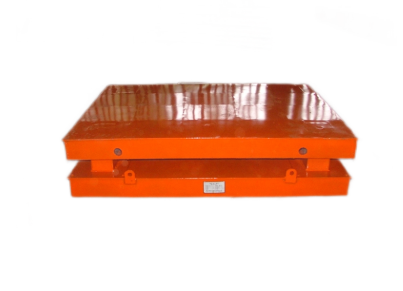
Applications of Industrial Platform Scales in Agriculture
Application 1: Livestock Weighing
Growth Monitoring and Feed Management: Accurately weighing livestock at regular intervals allows farmers to monitor individual animal growth rates. This data is crucial for adjusting feed rations to optimize growth and minimize feed waste. By tracking weight gain, farmers can ensure animals are receiving the proper nutrition for their stage of development.
Health Assessments and Disease Prevention: Sudden weight loss can be an early indicator of health problems like disease or parasites. Regular weighings help identify animals that may require further veterinary attention. This proactive approach can help prevent the spread of disease within the herd and improve overall animal health.
Breeding Decisions and Market Readiness: Accurate weight data is essential for selecting breeding stock based on desired traits such as size and weight gain. It helps determine the optimal time to market animals for slaughter, maximizing profitability. For example, livestock intended for show or competition can be weighed regularly to track progress and ensure they meet weight requirements.
Application 2: Crop Yield Monitoring
Determining Yield per Acre: By weighing harvested crops, farmers can calculate the yield per acre for different fields and crops. This data helps identify high-yielding varieties, assess the impact of different farming practices (e.g., fertilization, irrigation), and optimize future planting decisions.
Optimizing Harvesting and Planting Strategies: Yield data can inform decisions about harvesting timing and equipment. For example, if the yield is lower than expected in a particular area, it may indicate a need for adjustments in planting density or irrigation.
Evaluating the Impact of Different Farming Practices: By comparing yields across different fields with varying inputs (e.g., organic vs. conventional farming), farmers can evaluate the effectiveness of different agricultural practices. This information can be used to improve sustainability and reduce environmental impact.
Application 3: Inventory Management
Tracking Inputs like Fertilizers, Seeds, and Chemicals: Accurately weighing inputs helps ensure proper application rates and prevent overuse, which can be costly and harmful to the environment. It also aids in inventory tracking, preventing shortages and ensuring timely reordering.
Monitoring Grain Stocks and Optimizing Storage: Regular weighing of grain stocks helps monitor for losses due to spoilage, pests, or theft.
Improving Supply Chain Efficiency: It ensures that the correct amount of produce is loaded and transported, reducing costs and minimizing delays.

Quality Control
Ensuring Produce Meets Market Requirements
Stringent Weight Standards: Many markets, whether local, regional, or international, have specific weight requirements for various agricultural products. For instance, some markets may have minimum or maximum weight limits for fruits, vegetables, or livestock. These standards can vary depending on the type of product, its intended use (e.g., fresh market, processing), and the specific requirements of buyers or regulatory bodies.
Preventing Rejection and Maximizing Revenue: Failure to meet these weight requirements can lead to product rejection, resulting in significant financial losses for farmers. By using accurate platform scales, farmers can ensure that their produce meets the specified weight standards. This helps to prevent rejection and ensures that the produce is accepted by buyers, maximizing revenue and minimizing losses. Furthermore, consistently meeting market standards can enhance the farmer’s reputation and build trust with buyers, leading to more favorable trading relationships.
Identifying and Separating Produce Based on Weight
Weight-Based Grading and Pricing: In many cases, agricultural products are graded and priced based on their weight. For example, larger fruits or vegetables may be considered premium quality and fetch higher prices.Similarly, livestock may be graded into different weight classes, with heavier animals often commanding higher prices.
Efficient Sorting and Separation: Platform scales enable farmers to efficiently sort and separate their produce into different weight categories. This allows them to accurately price and market their products based on their weight, maximizing their overall revenue. For example, a farmer can use a platform scale to separate a harvest of apples into different weight categories, such as “extra large,” “large,” and “medium,” and then price each category accordingly.
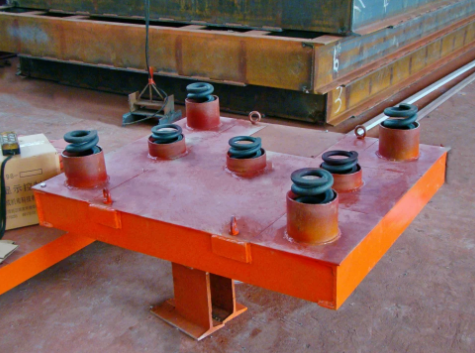
Choosing the Right Industrial Platform Scale
Key Considerations of Choosing the Right Industrial Platform Scale
Weight Capacity (Maximum Load): The most crucial factor is the scale’s capacity. It must be able to accurately weigh the heaviest loads expected, whether it’s a single animal, a truckload of grain, or a large piece of farm machinery. Underestimating the weight capacity can lead to inaccurate readings, damage to the scale, and potential safety hazards.
Accuracy and Precision Requirements: The level of accuracy required depends on the specific application. For example, livestock weighing may require higher accuracy than general crop weighing. Precision is also critical, ensuring consistent and repeatable measurements. Consider the acceptable margin of error for your specific needs.
Durability and Resilience to Harsh Environments: Agricultural environments can be challenging, with exposure to various weather conditions, moisture, dust, and heavy use. The scale must be constructed from durable materials like stainless steel or heavy-duty alloys to withstand these conditions.
Features (Data Logging, Connectivity, Ease of Use): Modern platform scales offer a range of features that can enhance their usability and data management. Data logging capabilities allow for easy record-keeping and analysis. Connectivity options (Wi-Fi, Bluetooth, etc.) enable seamless integration with farm management software and other devices. Ease of use, including clear displays, intuitive controls, and user-friendly software, is crucial for efficient operation.
Budget and Return on Investment: A higher-quality scale with advanced features may have a higher upfront cost but can save time, improve efficiency, and reduce errors over time.
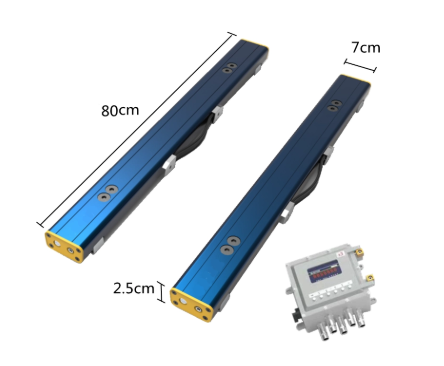
Types of Industrial Platform Scales
Pit Scales: These scales are installed in a pit below ground level. They are commonly used for weighing large vehicles and heavy machinery.
Above-Ground Scales: These scales are installed on a solid foundation above ground level. They are more versatile and can be used for weighing a wider range of items, including livestock, crops, and smaller vehicles.
Portable Scales: These are lightweight and easily moved, making them suitable for weighing items in different locations. However, they may have limitations in terms of weight capacity and accuracy compared to larger, more stationary scales.
Smart Scaling for Smart Farming
Selecting the right industrial platform scale from a reliable scale supplier such as Bincen is an investment that can significantly enhance the efficiency and profitability of any farm operation. By carefully considering factors such as weight capacity, accuracy requirements, durability, and available features, farmers can choose a scale that meets their specific needs.

